Nostradamus interview
Vienna was a very conservative place for young musicians interested in experimenting with rock music. There were only a couple of underground bands around. Nostradamus managed to record enough material for the whole album.
When and where were you born?
Rudy Kronfuss: 22. October 1951 in Vienna/Austria.
How old were you when you began playing music and what was the first instrument you played?
I started playing guitar when I was 12 years old. I had a very simple folk guitar. My friends all started playing and said they were going to form a band and I should be part of it. We had no lessons, we figured things out by ourselves and by watching other people.
What bands were you member of as a young kid and what types of music did you play?
When I was able to play a couple of songs my friends started a little band, but in the beginning it was just acoustic. I was 12 then. We were just imitating our idols and were also inspired by a band of grown-ups in the village. We started with three acoustic guitars and showed each other chords and songs. Electric instruments and amplifiers and a drum kit were a basic problem. None of us had very rich parents. My first electric guitar I had to finance myself – paying each month a small amount for a whole year. My friend had to return his guitar, because he could not pay any more. Later he could solve this problem and borrow an instrument. We played Beatles, Rolling Stones and songs by the Kinks and the Who. During summer vacation and in weekends we were allowed to rehearse in a school, actually in the gym room. Our bass player had proudly built his own amplifier and I was allowed to use it. We were always kidding a lot while playing, so my friends did not take it too serious at first when I suddenly made strange spastic movements during a rehearsal. The problem was I could not move my fingers off the strings because of electricity, I was stuck to it and feeling 220 Volts in my whole body! Finally a friend pushed me to the ground and helped me out, but he could feel the shock as well. That surely was my first “electric experience”. Our little band, I do not remember if we had a name, played first at private parties for a small group of friends. All of this happened in a small village where my parents came from and where I spent weekends and vacations.
You played on quite a few high school parties.
There were only a few school events, but they were important for us, because we had a critical audience, teachers and students as well. I am talking here about a basic formation of three high school friends playing bass, drums and guitar. This happened in Vienna and we were around 16 years old. On occasions we asked a singer to join us.
In 1969 Jimi Hendrix visited Vienna. Did he leave any impact on you?
Hendrix had a huge impact on me. I was a fan of his from 1967 on when ‘Hey Joe’ was played on the radio. Before that Pete Townsend was my big hero and I sure was a fan of The Who. I was very keen to improve on the guitar and constantly looked for new things – naturally I ended up listening to Hendrix. I saw both shows of Jimi at the Konzerthaus and sat a few meters in front of him at the second concert. I had eye contact with him, he smiled at me and changed my life – I was 17 then and I could sense my life mission.

What can you tell us about formation of Nostradamus?
My high school trio that I mentioned earlier soon found a singer and we had our first gigs. After a jam session a violin player joined us and that was the basic formation of the band. We were all students, architecture and English.
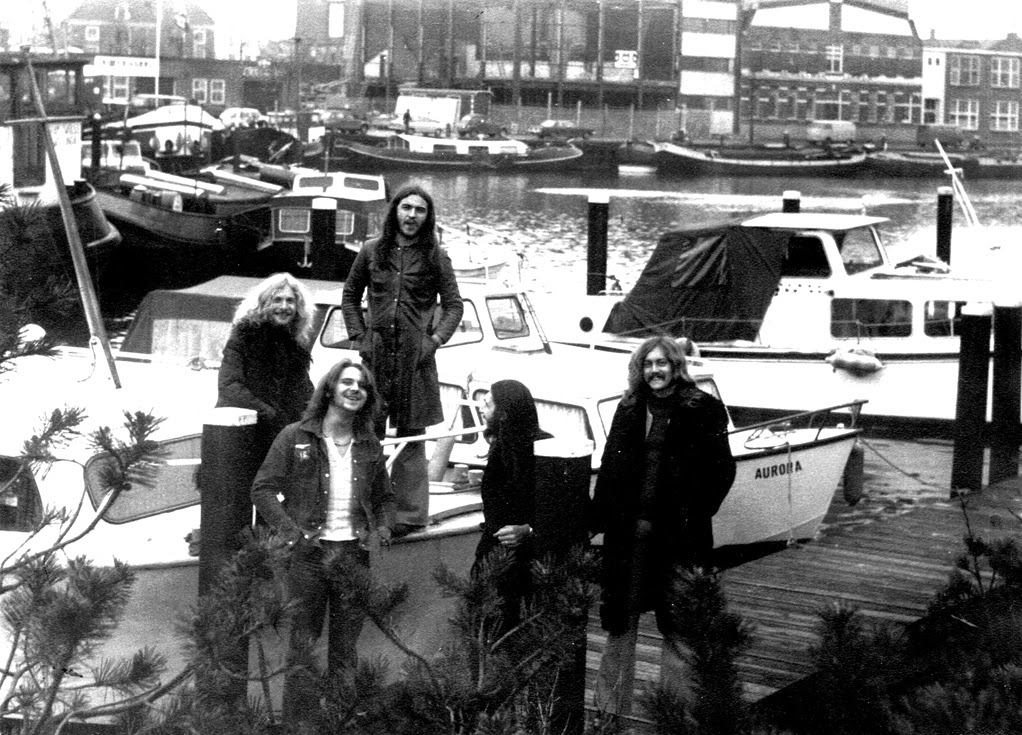
What are some memories from early rehearsals?
An affordable rehearsal space was difficult to find in Vienna. A lot of bands shared a place or rented it to each other. In the beginning we did not have our own amps, so we depended on help from other bands. Finally we managed to find a cellar 4 departments under ground in the first district of Vienna. That was our own world – jamming all night long. That’s how we developed our music, with free playing and experimenting. Music from other bands was merely inspiration, we wanted to find our own voice and style.
Improvisation must had been a big part of the band? What can you tell us about the song writing process in your band? What music, books or films inspired you at the time?
Yes, jamming was a major part of the creative process – it was discovered in those days mainly by bands like Cream, Hendrix, The Grateful Dead and Jeff Beck only to name a few. It was a part of those days, to free yourself from old things on almost any level… I was influenced by all sorts of music – anything that sounded great would have a place in my music.

Classical, eastern or African music there were no limits as long I could relate to it. The band was influenced also by Free, The Flock, King Crimson and Gentle Giant, just to name a few. Soft Machine, Frank Zappa – there was so much new stuff popping up.
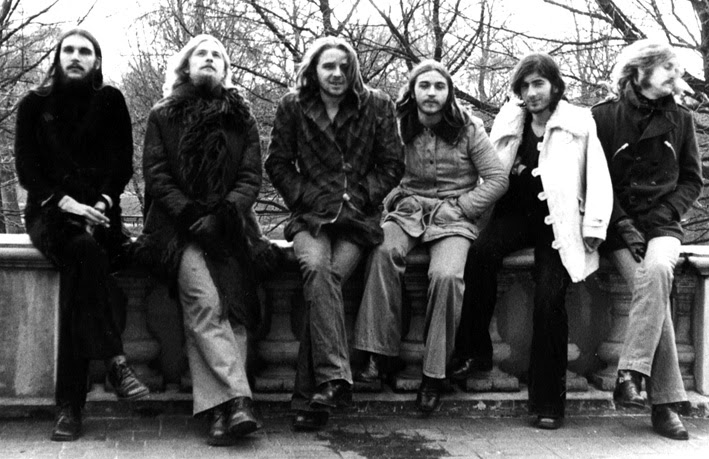
You were probably one of the few underground bands in Austria. What was the scene back then?
That is true, there was a small scene in Vienna at that time. I remember names like Walter Frey (Jesus H.C.), Novak’s Kapelle, Onion Gook, Acid, V.I.P., Yashmak Guru, Drahdiwaberl, L.S.D., Charly Ratzer and Peter Wolf. Some of those were friends while others were more in a competition mode.
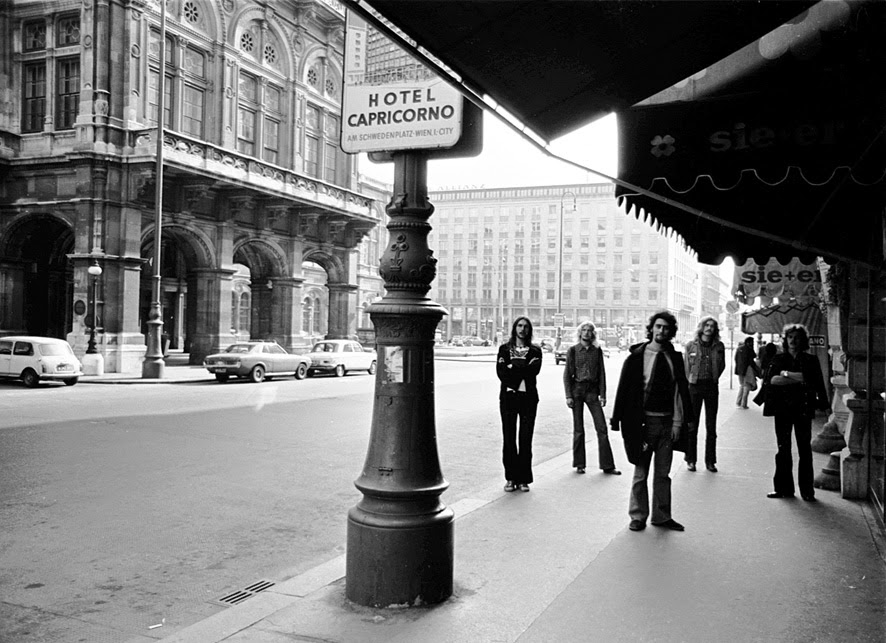
Where all did you play?
In Vienna there were a few clubs who had live bands. It was hard to find gigs, but we managed to play here and there. The main problem was that our music was rather unusual and Vienna was a very conservative place. I estimate there were about 2000 young people in the whole city who dug new stuff and were trying to get rid of old patterns. Most of them were students and working class drop outs. So one saw the same people on various locations. We tried also gigs in the rest of Austria, but there were very few possibilities. Too often we were asked to be more commercial and play hitparade songs.
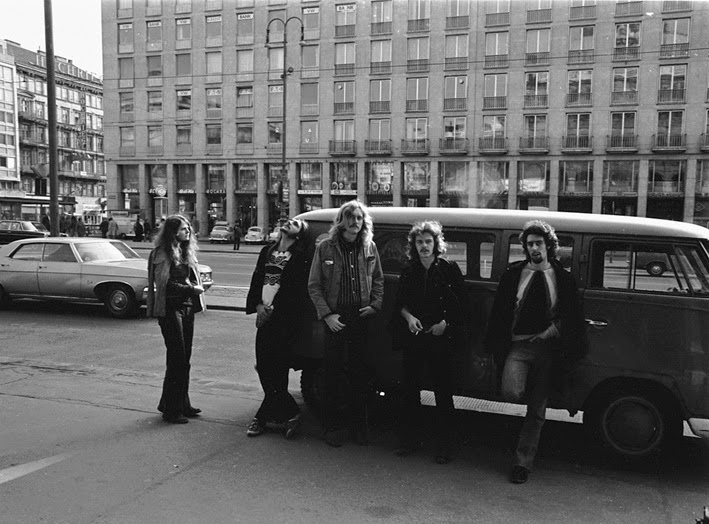
You got an opportunity to record an LP? What were the circumstances behind this?
There was a time when Nostradamus became a little known in the “progressive scene” and we had been introduced in the “Musicbox” which was a popular radio program for teens. A producer – I won’t mention his name – saw a commercial value in us and offered us free time to record an LP. I guess he was hoping to change our approach and turn us into commercial guys. Of course that did not work – when the recordings were finished a company in Hamburg, Germany was ready to publish an LP and promote the band. The producer suddenly asked a huge sum of money for the recordings, which the company in Germany of course did not accept. If I would simplify things, greed killed this project. On top of it, money became an issue and our singer was leaving the band due to promises by the producer.
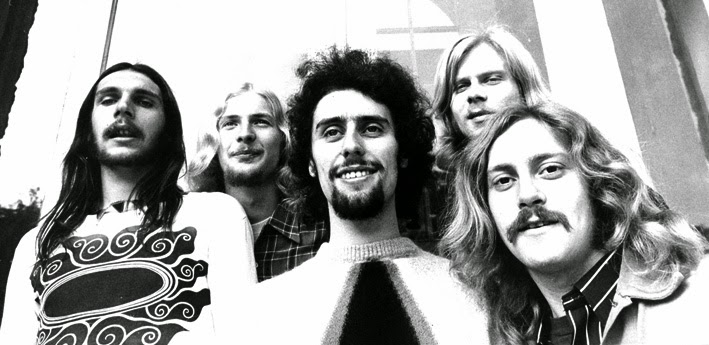
You made recordings at the Mueller and Bronner studios and you actually got some airplay and attention at the main radio stations.
Those are two different studios – at the Mueller studio we made demos for ourselves to be able to get more gigs, while at the Bronner studio we were recording our LP under the guidance of a producer who had the possibility to use the facilities when it was not booked.
Yes, we played a few times at a major national radio station (OE 3) and had interviews and everything. I was really proud that my song ‘Aquarium’ was aired all 7 minutes long, that was really something in those days. Unfortunately our master tape of ‘Silently You Open The Door’ was lost there and never returned. Airplay helped us to get more attention, a few gigs and the offer to record an LP.
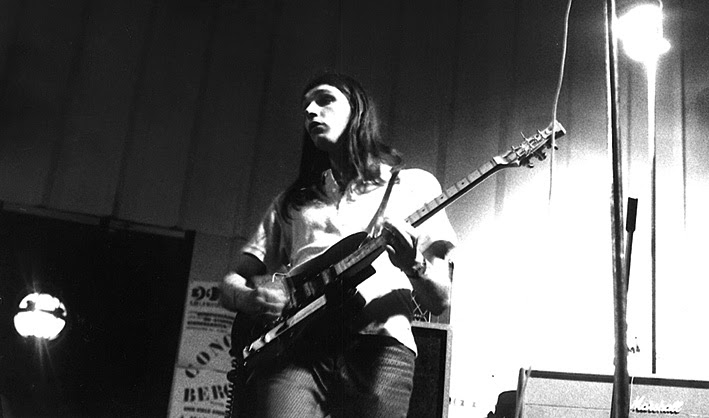
What were some of the strongest memories from recording and producing this LP?
I do not remember too much of the LP recordings, except the endless discussions with the producer who wanted to make a commercial product. The disagreements sadly resulted in loosing our singer Mario, who was going to sing and write for that very same producer in the future.
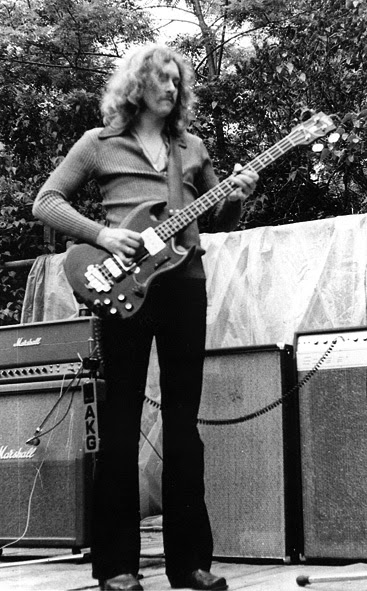
So the strongest memories I have from those sessions was the breaking up of the original “Nostradamus” that I could not prevent and that the producer had “taken” our lead singer.
What gear did you use?
We used Hiwatt, Fender and Marshall amps – things changed all the time. Having a good PA was often a problem in those days. I used a Hayman guitar and later a Gibson gold top.
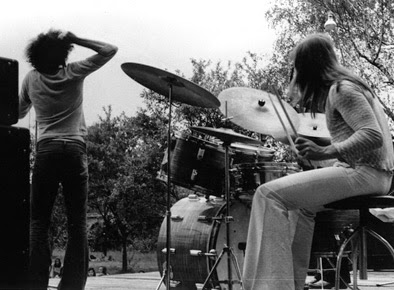
As mentioned above you received some airplay. What happened?
We brought our own recordings and had a copy of parts of the LP recordings – that were aired, the producer saw it as free promotion for his future release. So it was all our own effort. In those days even a little tape was OK if the quality was worth airing. I remember especially those old giant stereo studio tapes. If a radio person liked your stuff he asked you for his program.
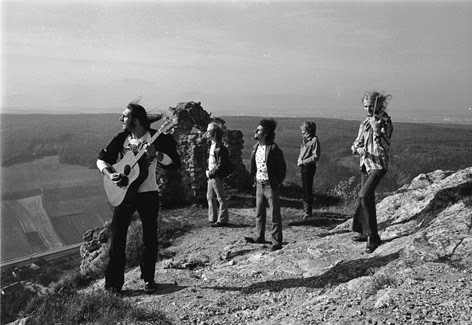
What can you tell us about the material featured on the album? Did you have any concept in mind or were songs made each on their own?
The album is more or less a collection of three different studio sessions. The three tracks with Hansi Lang on lead vocals were recorded short before the band left to the Netherlands. So this is just the studio material from a period of 3 years (1971 -1974). It also involves two different bass players and drummers. Every song has its own story, and mostly resulted out of a personal experience or things that happened to us at that time period.
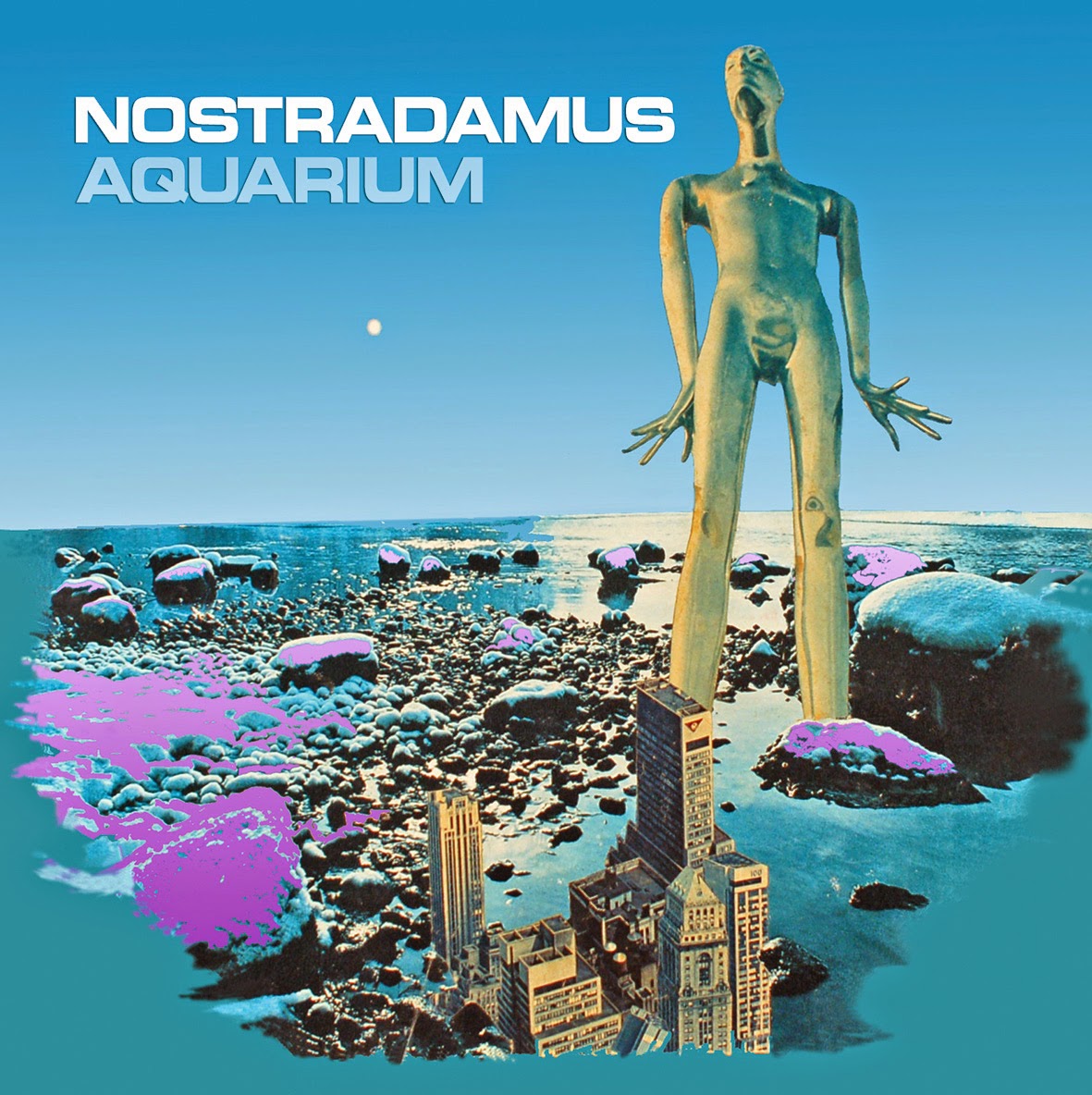
Did Nostradamus play many gigs? What were some of the venues you played? Who were some of the artists you appeared with?
Due to the situation we did not have a chance to play as often that we wanted to. I remember gigs at the Camera Obscura, Electronic, Go go club, The Voom Voom, Der Spiegel and The Atrium and also at the University and other places.
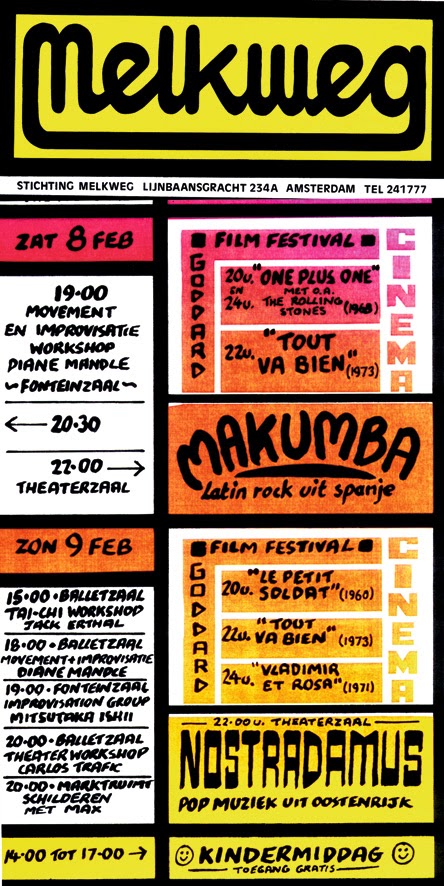
On small festivals we played with other local bands but no international famous bands.
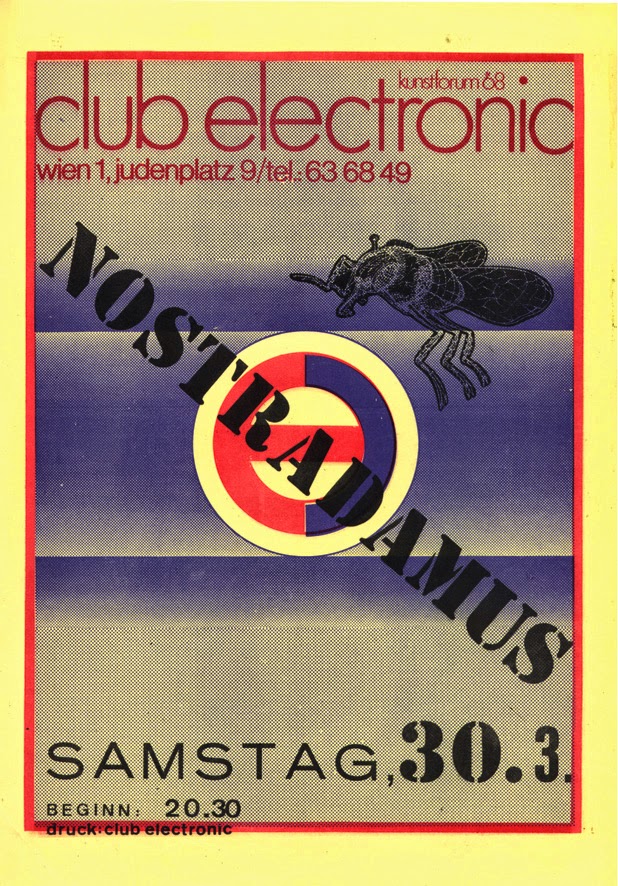
Was this after the LP was recorded?
No, before and after, the LP was meant to help us to open doors also for Germany, which had a big market.
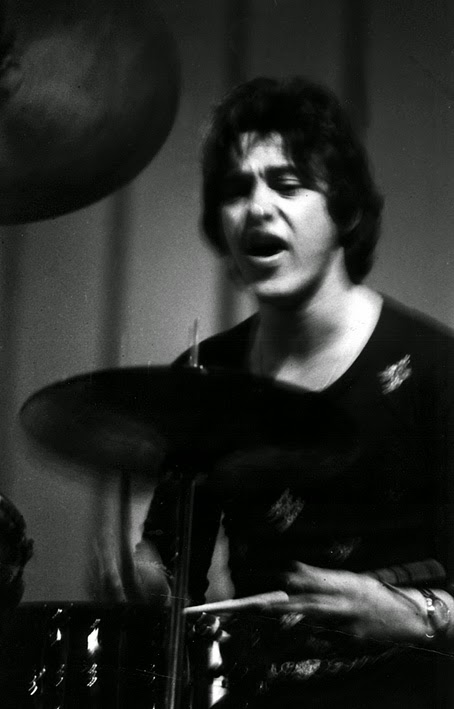
Is there any unreleased material?
Yes, I hope it will be heard someday …
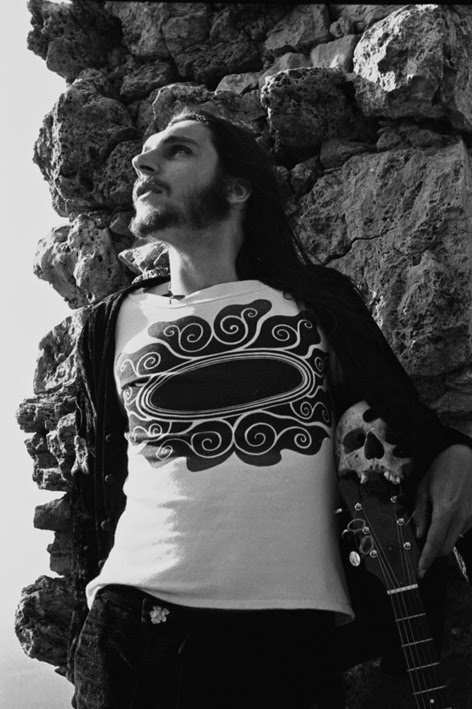
Would you share your insight on the albums’ tracks?
‘Laney’
Just a song about misunderstandings between boy and girl.
‘Trembling Leaf’
About establishing a new relationship with nature and trying to grow up.
‘Aquarium’
A song about feeling one with everything.
‘Woman So Wise’
Critical male song about (some) female behavior.
‘Big Chieftain’
Song about the great Jimi Hendrix.
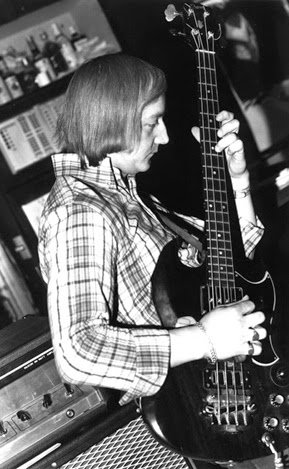
‘1000 Angels’
Song about a spiritual experience.
‘Silently You Open The Door’
A mini suite about the journey into the Unknown.
‘Silver Woman’
Tribute to the goddess within every woman.
‘Riders In The Sky’
A straight astro-rock song with a lot of symbology.
‘Your Love’
A demand for attention and request for love.
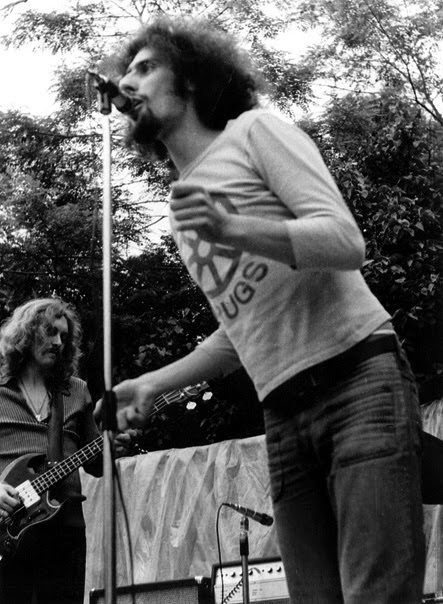
Shadoks Music released your album.
It was a surprise that Shadoks Music approached me for the release after all those years – Nostradamus was the band of my youth, every song was a personal experience … I have remastered the old tracks and I am pleased with the results, despite the pretty bad condition of the old tapes.
I’m really impressed with the overall sound of the album.
Thank you, Peter Mueller was responsible for the recording, the mixing was a group effort – I merely remastered the material.
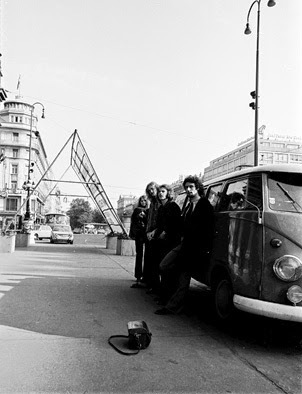
What about the cover artwork?
Shadoks release used my artwork and my photo collection and made a great new layout. The cover of the LP is the original poster we used (my artwork) – that was originally black & white. I added some colour to it. I think it still looks cool after 40 years!
Would you discuss some of your most memorable moments in Nostradamus and what made them so?
Rehearsing in our cellar was wonderful – like visiting another world. A lot of our gigs were great experiences, sometimes generating very high energy. I remember a concert at the University in Vienna. At the encore we played a Hendrix cover called ‘Room Full Of Mirrors’. I swear I could feel every person in the big hall even in the last row there!
I will never forget our extended improvisations and our creative moments, sometimes we rehearsed for hours because our ideas were flowing. Of course our first studio recordings were a special experience. Our trip to the Netherlands, which lasted about a half year was a life changing event for everyone involved.
Are there any crazy stories left?
Of course the times were crazy and we only could survive in the grey sea of Viennese conservatism by creating our own world. When you walked in the streets some crazy old lady might try to hit you with her walking stick because of the length of your hair! Some venues would not let you in because of your looks.
Would you call it crazy when you get a fine from the police while playing 4 departments under ground for “disturbing the open order” because of volume? There were shocking things all around us: Friends from other bands found dead from overdose or people freaking out on bad drugs. Paranoia was everywhere – the system and the older generation saw us partly as a threat, I have no idea why. And there were a lot of parties going on. Vienna had a handful of communes that were meeting places. We enjoyed our freedom as students as well. Nostradamus decided to move to the Netherlands, because there was no future for us in Vienna. Half of the band got carried away by the new freedom there, while the rest tried to make a future to be able to live from our music. The police made an end to all of this: because of not having working/staying permits Nostradamus was disbanded. Everyone left, but I decided not to move back into the “museum” called Vienna.
Is there a story behind your name?
When I was 16 I learned astrology and read about the famous French astrologer and doctor Nostradamus who used riddles to give messages to future generations. I wanted to do that with music – to kind of predict what will come. The name itself also expressed what our band was about: if you split it into “nostra” and “damus” which is latin meaning “we” and “give” – translated freely it sort of means: “we give what we have to offer”. For me there was a connection between the mysteries hidden in that name and our music, and besides that, growing up in the ’60 in Vienna was sometimes like living in the Middle Ages anyway …. Read it like “No – strada – mus” and let your imagination wander – you might read: “No street music” – right, we wanted to make cosmic music that’s why we used to call it “astro -rock”.
What happened after the band disbanded?
Nostradamus ended in 1975 in the Netherlands and I decided to stay. I started a Jazz Rock band (instrumental) called “Fontein” (Dutch for “fountain”).
Then I played in Big bands and little Jazz groups. In 1978 I started studying Jazz guitar on the conservatory and got my master degree in 1984. I had a great guitar band at that time: “The Electric Guitar Corporation“.
Later I worked with a Fusion band with a female lead singer called “The Touch“.
In 1994 I got my master degree for my 4 years studies composition/arranging, while from 1980 on I was a guitar teacher at the music school in Hilversum. I was performing artist, composer/arranger and producer. My compassion for Jimi Hendrix’s music never diminished: I play tribute concerts all over Europe until today. I have restored a couple of unfinished songs that Jimi has left us and published them on two cover CDs. A lot of unfinished Nostradamus music has resulted in recordings, and some songs I have rearranged – please have a look here.
What currently occupies your life?
Composing, producing and playing music. Video production, art and poetry. I am also working on different projects concerning Jimi Hendrix.
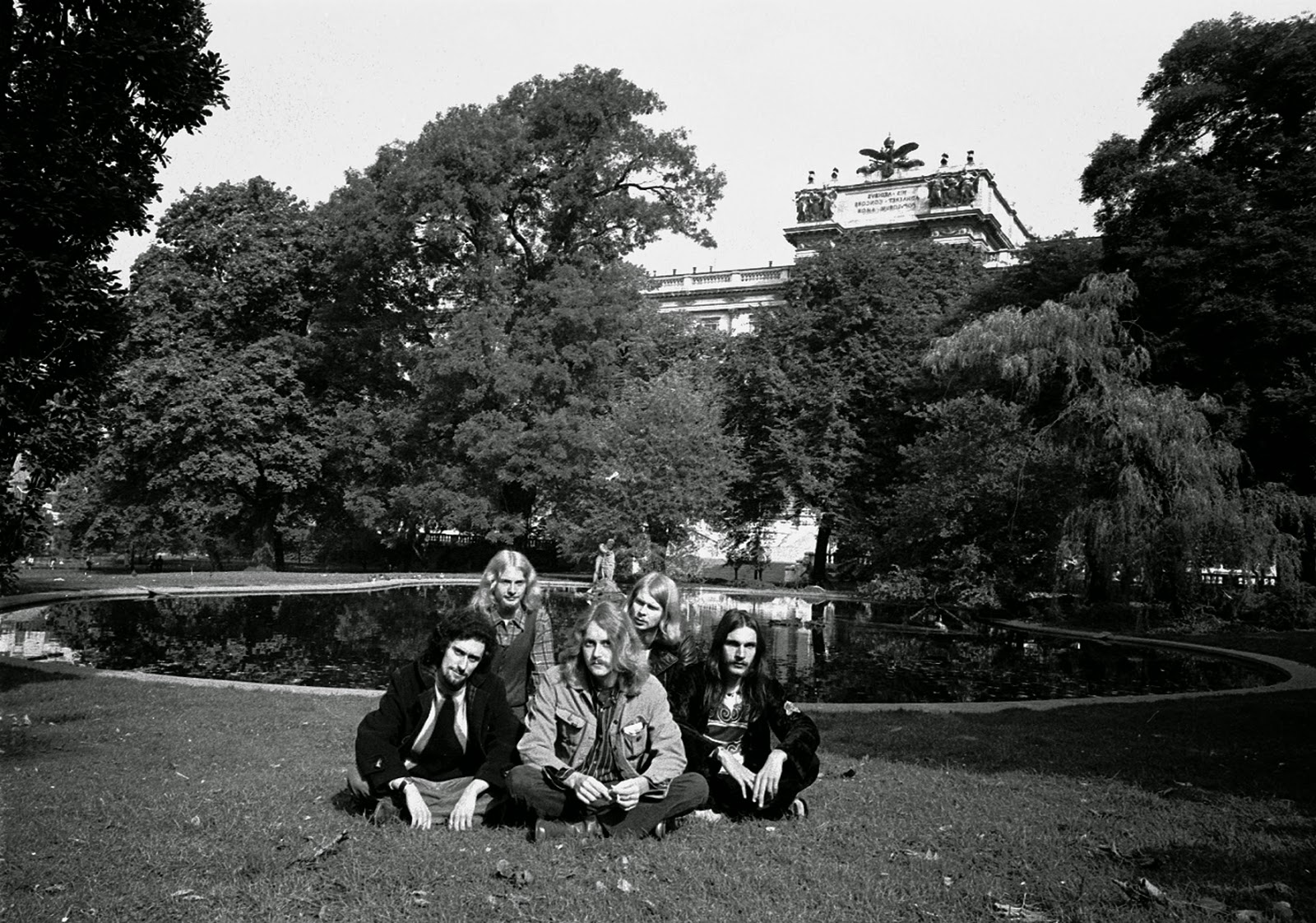
Thank you very much. Last word is your.
Nostradamus had great musical potential and power – I feel that our music was way ahead of our time and unjustified labelled “Underground” or “Non-commercial” by record companies. We were unlucky that a single greedy producer could stop our international growth by blocking our LP and helping breaking up the original band. Deep in my heart I knew that we could make a difference, but we probably were in the wrong place at the wrong time… anyway, I have recorded many songs later as a solo artist, just check my CD’s here.
I hope all of you enjoy the music we created and I feel honored to be able to share all of this with you – life is a miracle! Rudy Kronfuss
Klemen Breznikar
Rudy Kronfuss Official Website
Rudy Kronfuss YouTube
Rudy Kronfuss YouTube 2


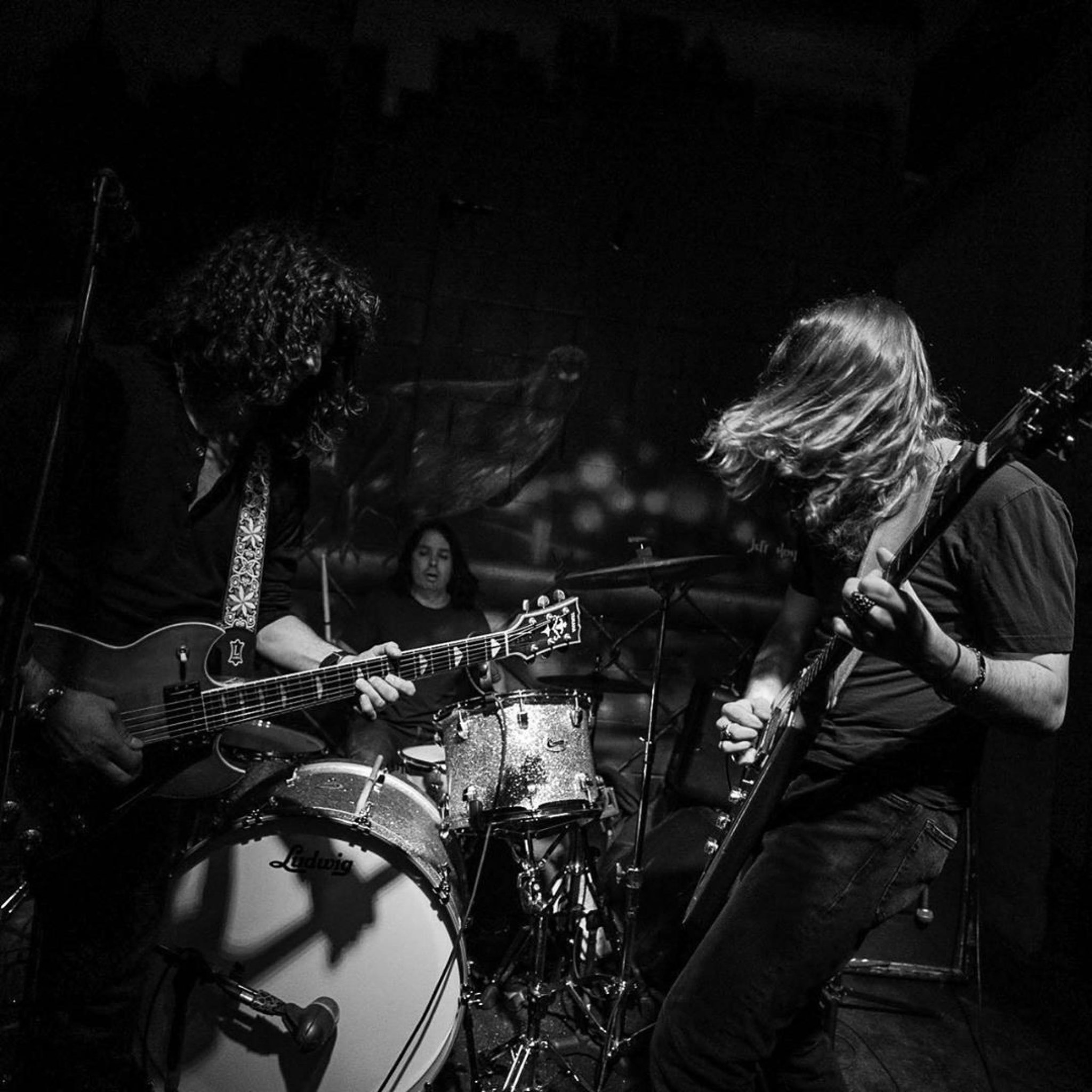
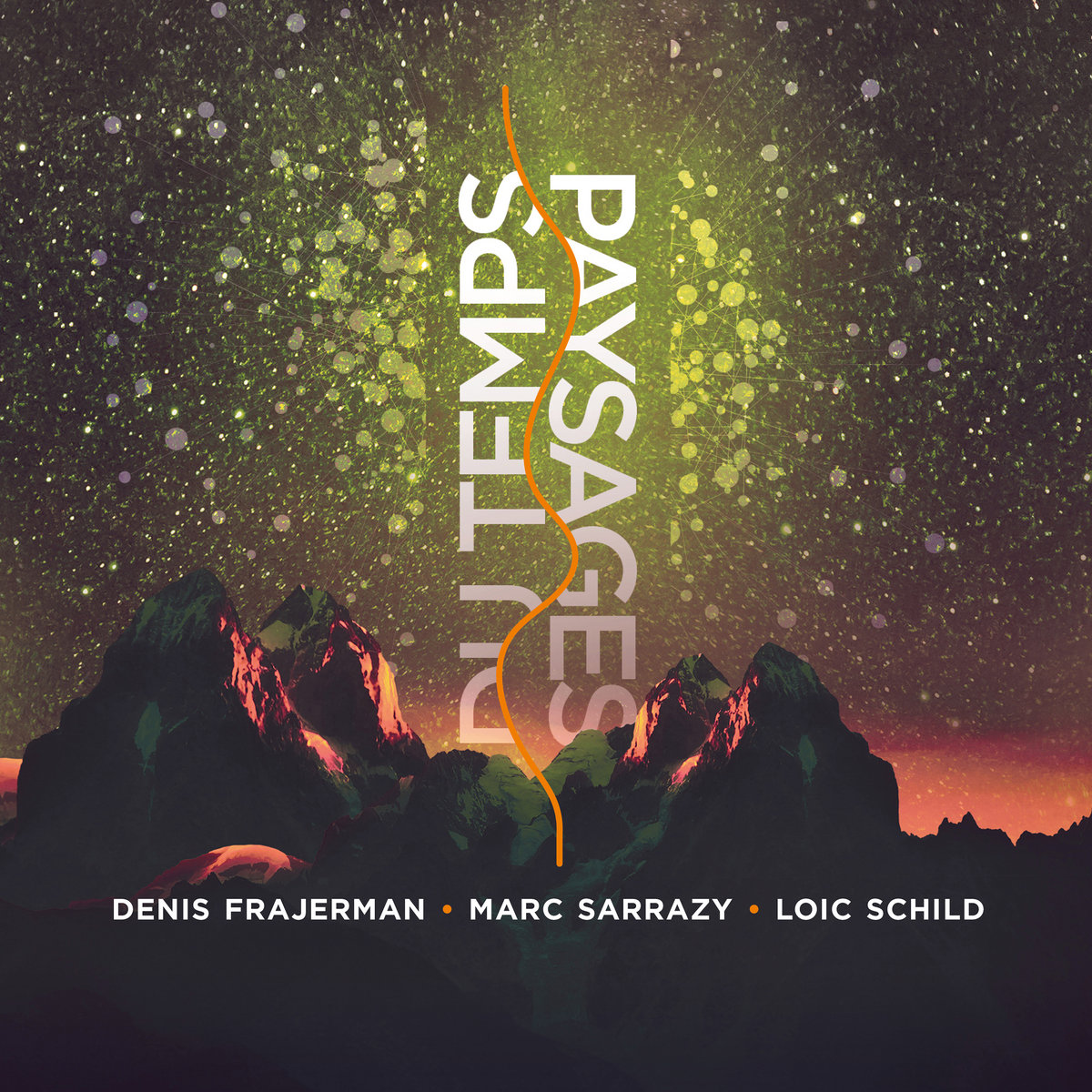
Lieber Namensvetter Rudi,mit großer Freude habe ich mir die Seiten angesehen. Dank der Möglichkeiten ( Internet usw. ) kann man heute einiges für seine Musik der Nachwelt hinterlassen. Werde mir alles anhören, es ist ja Musikgeschichte aus Österreich. LG. Rudi